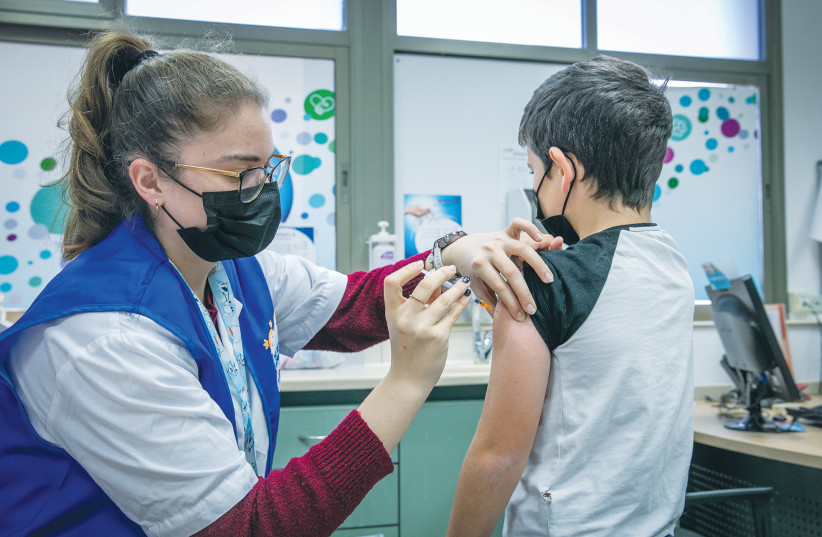Coronavirus is a serious illness for children and can cause a range of physical symptoms. Now, new research shows that it has a dangerous effect on them. This is what is currently known.
Everyone knows that coronavirus damages the body, but when it comes to damage that occurs mainly in children, the information is a little less accessible and known. A study reported on earlier this month by the Centers for Disease Control and Prevention in Atlanta last weekend examined the prevalence of diabetes in children under age 18 who also had the virus. The findings are worrying.
This study evaluated recent US health insurance claims databases to look at the prevalence of a diagnosis of diabetes in young people under 18 from March 2020 to June 2021, comparing the development of diabetes in kids who also had coronavirus in contrast to patients with diabetes who weren’t infected.
Researchers found that there was an increase in diabetes in the two groups, although the rates were quite different; in the group of those who didn’t have the virus, there was a 30% increase in diabetes, while in the group that did have coronavirus there was a 2.6-fold increase in the incidence of diabetes. "Even a 30% increase is a large increase in risk," said Dr. Sharon Saida, a lead researcher at the Centers for Disease Control . She added that it wasn’t clear if those diagnosed had type 2 diabetes which can be reversed with weight loss and other medical treatments, or type 1 diabetes which is irreversible.”
The study findings show the importance of vaccinating children, and how important it is to protect younger children who can’t be vaccinated. "It’s important for pediatricians to know symptoms of diabetes: increased thirst, frequent urination, unintentional weight loss and fatigue," Saida said.

Another study, also published by the CDC last Friday, found that two doses of the vaccine protected young people hospitalized between the ages of 12 and 18 from severe multisystem inflammatory syndrome. Prof. Julio Weinstein, director of the diabetes research unit at Wolfson Medical Center in Holon, said that "with the advent of the coronavirus, we knew it could damage various organs in the body."
He added that until now medical personnel were used to the virus affecting the body’s organs including the heart. Doctors have seen cases where the virus infiltrated and damaged different parts of the brain and digestive system. Now, they see that it can also damage the pancreas. The pancreas is an organ that has two functions - one related to the digestive system and the other has beta cells that produce the hormone insulin which is what controls and regulates blood sugar levels. Once these cells are damaged, there are no other cells in the body or another organ which produce insulin. If they’re destroyed there is no way back. "When the number of beta cells in a child or adult decreases significantly, then the body can’t produce an adequate amount of insulin. Blood sugar levels are quite elevated and this is called diabetes."
In addition, Prof. Weinstein said that the study proves the importance of the vaccine for children as well: "The study in question showed that children who didn’t receive the vaccine and contracted coronavirus are at risk of developing diabetes.”
He added that if until now doctors were afraid of the virus because of the immediate effect which can cause severe respiratory distress, today we understand that it has additional consequences so kids should be vaccinated.
